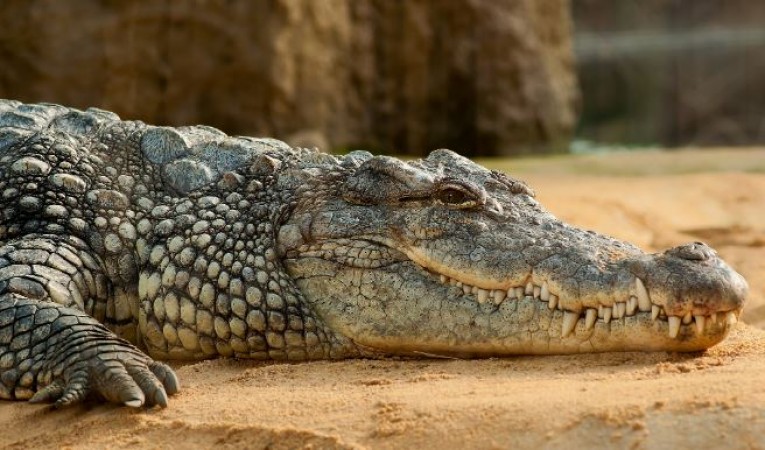
Crocodiles: ancient creatures that have survived for millions of years, often depicted as fearsome predators lurking in the waters. But have you ever wondered why these reptiles react to the cries of human babies? Is it an instinctual predator response, or is there something more to this behavior? In this article, we dive into the intriguing world of crocodile behavior and explore the reasons behind their reactions to the cries of human infants.
Crocodiles have captivated human imagination for generations with their powerful bodies, sharp teeth, and mysterious behavior. Found in various habitats around the world, from freshwater rivers to brackish estuaries, these creatures are known for their stealth and remarkable ability to adapt. Yet, one curious aspect of their behavior is their response to the distress calls of human babies.
Human babies are born with the instinct to cry as a means of communication. Whether hungry, uncomfortable, or in pain, their cries are designed to capture the attention of caregivers. Interestingly, these cries also seem to capture the attention of nearby crocodiles, prompting the question: why do these ancient reptiles react to such sounds?
Crocodiles possess an acute sense of hearing, finely tuned to detect vibrations and sounds in their aquatic environment. Their ears might not be as conspicuous as those of other animals, but they are exceptionally sensitive. This heightened auditory perception aids them in various aspects of their lives, including hunting and social interactions.
When it comes to the cries of a baby human, the reaction of a crocodile might be twofold. While some experts suggest that it's an instinctual response tied to their predator nature, others propose a different perspective. Could it be that crocodiles are not solely reacting as predators, but also responding to the vibrations and frequencies emitted by the cries?
As living relics of prehistoric times, crocodiles share a deep ancestral connection with dinosaurs. This connection, forged through millions of years of evolution, could shed light on their seemingly unusual behavior. Just as some birds react to the calls of their offspring, crocodiles might have retained an ancient instinct linked to the protection of their young.
Another theory behind crocodile reactions to human baby cries could be the unintentional resemblance between the two sounds. It's suggested that the distress calls of human babies might bear auditory similarities to the sounds produced by potential prey of crocodiles in distress. This unintentional mimicry could trigger a response from these ancient reptiles, even if it's not motivated by predatory intent.
The behavior of crocodiles raises a fascinating debate about the interplay between instinctual behaviors and adaptation to changing environments. Are these reactions hardwired into their DNA as a result of their ancient predatory lifestyle, or have they adapted to respond to various sounds due to their role in ecosystems?
Understanding crocodile behavior requires considering the context in which these reactions occur. Factors such as the proximity of the crocodile to the source of the sound, the time of day, and the overall environment play a crucial role in determining the nature of the crocodile's response. It's not just about the cry itself; it's about the circumstances surrounding it.
Studying the behaviors of crocodiles and their interactions with the environment has broader implications for conservation efforts. By unraveling the mysteries of their reactions to certain sounds, researchers can gain insights into their ecological role and how to better protect their habitats.
Understanding the reasons behind crocodile behavior can also contribute to human safety education in regions where these reptiles coexist with local communities. Educating people about the cues that might trigger certain reactions in crocodiles can help prevent dangerous encounters and foster peaceful coexistence.
The question of why crocodiles react to the cries of human babies is a complex one, blending elements of evolutionary history, adaptation, and sensory perception. While their response might have roots in their ancient predator instincts, it's becoming increasingly clear that the story is more nuanced than simple predation. As we continue to unravel the mysteries of these remarkable creatures, we gain not only a deeper understanding of their behaviors but also insights into the intricate web of life that binds all species together.
Taking Care of Your Eyes: Important Advice for Safe Screen Use
How Meat Alternatives For Dogs Could Be Replaced By Insect-Based Foods?